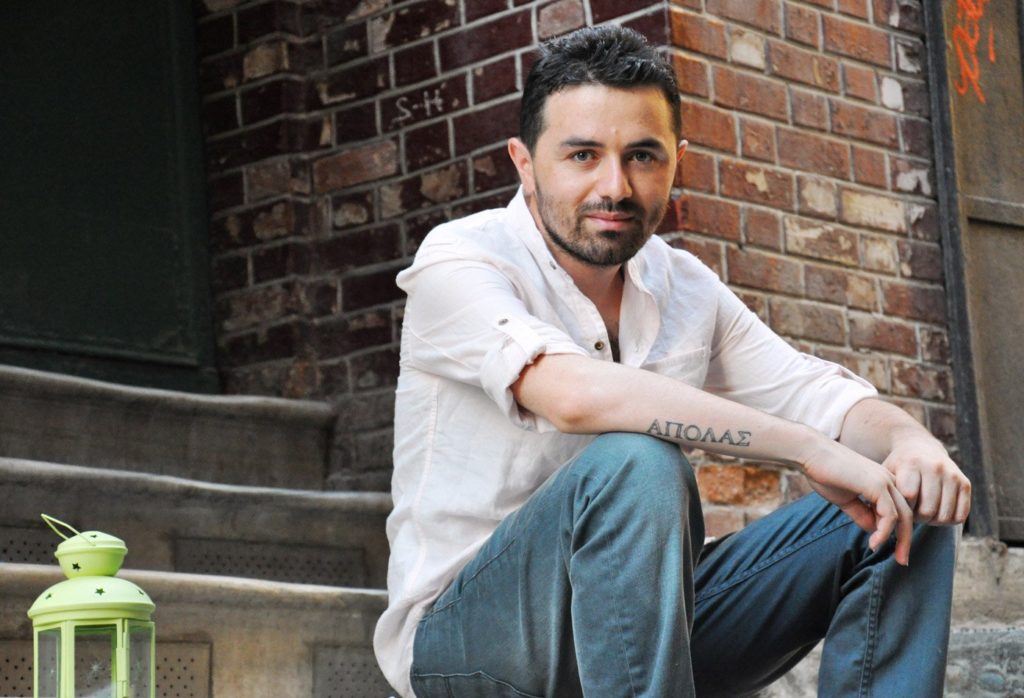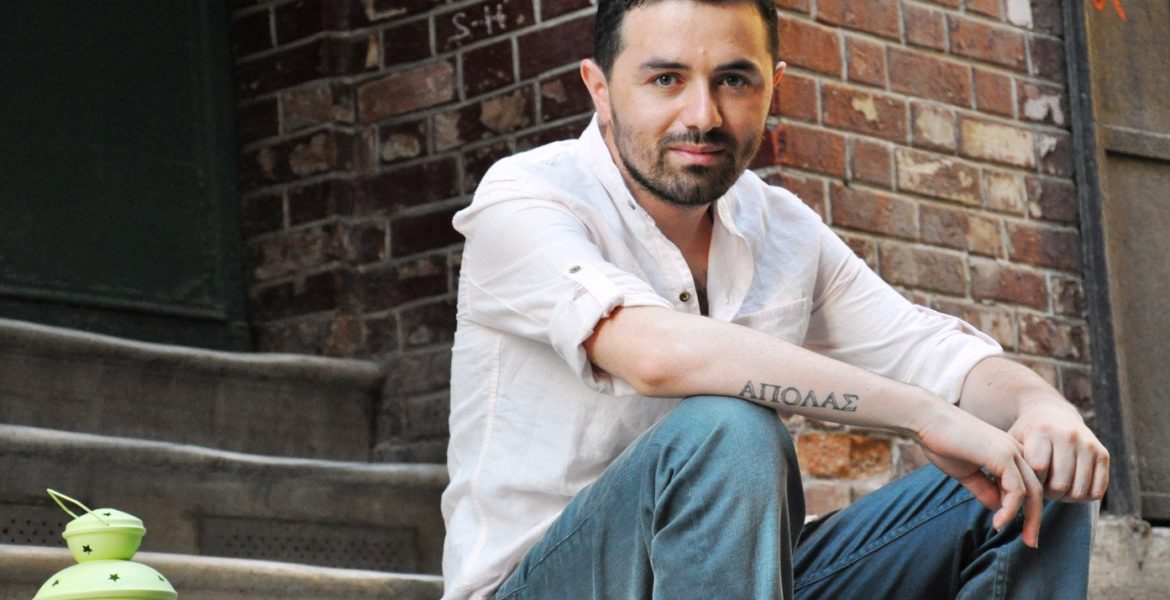
With the popularity of Greek City Times' interview with Merve Tanrıkulu, demands were made that we speak with more performers in Turkey who are keeping Pontian traditions and music alive.
This time we speak with Apolas Lermi, a musician from Trapezounta on Turkey's Black Sea coast, who has created four albums: Kalandar, Santa, Romeika and Momoyer, that he says adds "an original understanding to Black Sea music."
 Speaking to Greek City Times, he said that he has "one hand in the East, one hand in the West, but always in Anatolia and the Black Sea."
Speaking to Greek City Times, he said that he has "one hand in the East, one hand in the West, but always in Anatolia and the Black Sea."
"I think that all the values in the land I was born in are a wealth and I am a part of this wealth. Romeika [Pontian Greek] is one of two languages spoken in my hometown. Romeika is not my mother tongue. However, I compare the culture I live in to a puzzle made up of Romeika words. I am trying to combine words and I know that some people don't want us to solve the puzzle," he explained.
However, despite some in Turkey not wanting people to learn Romeika, he explained that although Turkish is his first language, he is currently trying to learn Romeika anyway, along with Modern Greek.
"Romeika is a cultural privilege for us. However, I believe that all the languages of the world should live. Every language is beautiful in its geography," the singer said.
https://www.youtube.com/watch?v=9H9hvDMHZtE
When asked whether Romeika is dying in Turkey, Lermi said "global capital, as well as the whole world is making plans on Turkey. They use cultural values for their own benefit. Therefore, in Turkey, all the languages other than Turkish and Kurdish are dying."
Romeika music in Turkey is a relatively new phenomenon though. For the Christian Pontian Greeks, the music lived on in Greece and the diaspora communities, but for the Muslims who remained in Pontus after the 1923 population exchange, Lermi said it "was somewhat derelict and an unwanted boy in the neighbourhood."
"I am a child of that geography and I wanted to do something about it. In 2011, I released the first album, Kalandar, which also featured Romeika songs. I shot a clip for a song in Soumela (Σουμελά, Turkish: Karadağ). It was the first time that a clip from Romeika was published in the national media. I drew a lot of attention and Romeika started to be discussed again with me."
Despite kick starting a Romeika revival in Turkey with this album, he said he received more bad reviews than good on social media and in newspapers. This led to performances at some music festivals being cancelled last minute and escalated to him also receiving death threats.
"These are still going on today. Some racist circles think that I am a Greek agent. All of this was due to my non-Turkish stage name and making Romeika music. Because I created an agenda on this subject and there was no other artist doing this. This was the power of music," Lermi said.
He also revealed that he was called a traitor because he was against the hydroelectric dam that was to be built on the Black Sea.
When asked why he chose the stage name Apolas Lermi and what it means, he said his musician friends in Constantinople shortened his real name Abdurrahman, which was his grandfather's name, to Apolas which was inspired by the Ancient Greek God of Music, Apollo.
"We come across names like Abdullah or Abdurrahman in the Black Sea region. People who lived there and preferred to be Muslims, perhaps chose to give their children names from the Qur'an to prove this," he explained, adding that the name "Apolas Lermis bothered some racist circles in Turkey. Although 10 years have passed since my first album work, I am still exposed to various curses and humiliations because of this name. I am not accepted at many music festivals because of my name and Romeika songs. People want me, but some managers prevent me from meeting them."
"However, there are pop music artists who do not have a Turkish name like me. They do not have these troubles. So we can draw the following conclusion from this - the fact that an artist from the Black Sea origin embroidered the Black Sea culture with non-Turkish themes annoys a certain part of the people. They accept the artists from the Black Sea only if they are in Turkish, Laz and Georgian," he said.
Our readers must remember that those of Romeika origins have always been looked at a lot more suspiciously then other Black Sea people like the Laz and Georgians. Most recently, in November last year, Mayor Hayrettin Güngör of Kahramanmaraş province was filmed telling a woman “we made you Muslim” after learning that she was from Trapezounta, causing a massive outroar in Turkey.
Lermi said that despite the many negativities, there were also people who supported him in Turkey and became more curious in Romeika music.
However, just as with Merve Tanrıkulu's experience, it was in Greece where there was universal support and praise for his musical efforts.
"Many people from Greece reached me via social media and I got very nice messages. I started going to Greece more often and I attended the association nights of Pontian Greeks living in Europe and America. It was nice to meet them," he said.
"I first went to Greece in 2010. I took the stage for two days in an event called Parakath in Thessaloniki. Many artists came to listen to me and I met the most important figures of Pontian music at that time. I had good relationships with them and we got closer. Then we worked together in many organisations and made duets with some names. Our work continues," Lermi explained.
Lermi explained that he sees art as the world's largest universal language and that music is the strongest expression of this universal language.
"On the other side of the world with music, you can enter the heart of a person you do not know, even if he does not understand your language at all, you can make him cry or entertain with music. Of course, the language we sing is important. However, music can sometimes express things that even our mother tongue cannot explain. It is very special to be a guest of people's emotional world," he said.
When asked what the Romeika language means with music, he said that he knows how sensitive emotions are from those whose mother tongue is Romeika. "Most of those who leave there are detached from this language and culture wherever they go. Even those who live there are not sensitive enough about Romeika. If the mother or father does not know Romeika, or those who know Romeika do not speak near the child, they cannot learn much," he explained.
"Despite all the pressures, I made an album called Romeika in 2016. All the songs were in the Romeika language. A simple album with words from different regions and different dialects. They do not have many examples of this in Turkey. I see it now. My work is an example to some young people. Proliferation of people thinking of Romeika makes me happy," he concluded.


